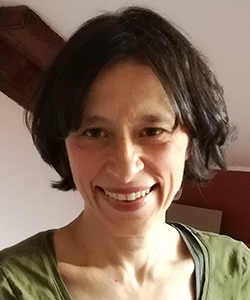Language Typology and Grammatical Evolution: Explaining Language Universals in Diachronic Perspective
Presenters: Sonia Cristofaro
T2TFD1
In language typology, the research paradigm that originated from the work of Joseph Greenberg, language universals are empirically observed distributional patterns where languages recurrently display certain grammatical configurations as opposed to others. Explanations of these patterns are usually synchronically oriented: particular grammatical configurations are preferred over others cross-linguistically because their synchronic properties comply with functional principles of optimization of grammatical structure, such as economy or processing ease.
The general theoretical premises of the typological approach are, however, essentially diachronic in nature. Starting from Greenberg, practictioners of this approach have emphasized that language universals evolve through recurrent diachronic phenomena leading to the emergence, conventionalization, and retention of the same grammatical configurations in different languages over time. This raises a general issue of whether and how the assumed optimization principles actually play a role in these phenomena.
The workshop will discuss the known diachronic origins of some of the relevant configurations cross-linguistically. Attention will be focused on configurations pertaining to word order, case marking alignment, and the use of overt and zero marking for different grammatical values. An ever growing body of evidence from grammaticalization studies and studies of language change in general show that the developmental processes that give rise to these configurations are triggered by the properties of particular source constructions and their contexts of use, rather than optimization principles pertaining to the synchronic properties of the resulting configuration. Also, individual configurations emerge through a diverse array of developmental processes, not amenable to a unified explanation in terms of general overarching principles.
These facts call for a source-oriented approach to language universals, one where the focus shifts form the synchronic properties of the relevant grammatical configurations to disentangling the effects of several different source constructions and diachronic phenomena that give rise to these configurations and shape their cross-linguistic distribution over time.
Keywords: Grammaticalization, Syntax, Morphosyntax, Typology, Language Change
Room STB 145, Tuesdays and Fridays, July 25-August 8, 2:30pm - 3:50pm
Tuesdays and Fridays
Presenters

Sorbonne Université
I am a professor of general linguistics and language typology at Sorbonne University. My research areas include language typology, the study of grammatical change, and the relationship between the two. I also have a background in Ancient Greek. I have worked on the typology of a variety of morphosyntactic phenomena, including subordination, insubordination, grammatical relations, possession, number and person marking. I have also worked on general theoretical and methodological issues in language typology, such as the relationship between typology and language description, the nature of language universals and grammatical categories, semantic maps, and competing motivations. I am currently developing a diachronically oriented approach to language universals (in the typological sense of statistically significant cross-linguistic regularities), which I call source-oriented typology. In this approach, the distributional patterns described by individual universals are accounted for in light of different source constructions and developmental mechanisms that give rise to the pattern from one language to another, rather than the synchronic properties of the pattern in itself. This is an evolutionary approach that aims to combine the results of typological research with findings from grammaticalization studies and studies of language change in general.
Room STB 145, Tuesdays and Fridays, July 25-August 8, 2:30pm - 3:50pm
Tuesdays and Fridays
